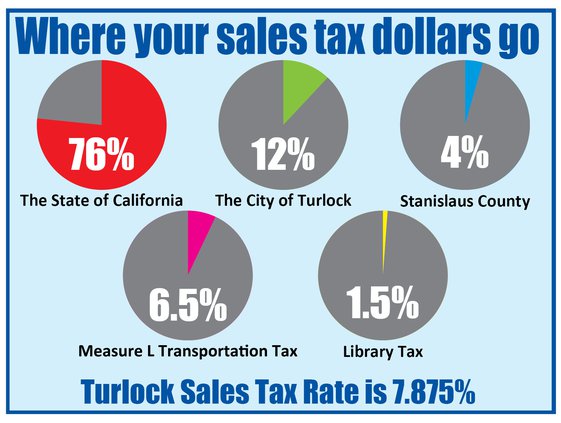No politician wants to ask his or her constituents to support more taxes, just as no citizen wants to pay more taxes. But as the City of Turlock is set to implement the most penny-pinching budget since the Great Recession, when 23 employees lost their jobs, the dreaded three-letter word has been mentioned as a possible funding source for the City’s depleted coffers.
In order to have a balanced budget for FY 2019-20, 16 currently vacant or soon to be vacant positions were defunded and there will be significant cuts in public safety overtime budgets that will see fewer police officers and firefighters on duty and a reduction in parks maintenance, among other money-saving tactics.
City Manager Robert Lawton said during a special budget workshop meeting that local governments in California are limited in how they can raise revenue to pay for the many services the City provides.
“I’m from New York myself, and back there we can raise taxes just as high as the Board thinks the public will accept…We didn’t have those types of limits that we do here in California. So, our ability to raise revenue is constrained very strictly here in California. We’re limited essentially to the actual growth that takes place. And that growth in revenues will consistently lag the necessary growth in the cost of doing business,” said Lawton.
While Mayor Amy Bublak has said that tax “is a bad word to me,” others are looking to a possible new local tax as a way to fund much-needed services such as police and fire.
“We are consciously lowering the standard of our city to a standard that we can afford right now. This budget should be the catalyst that strongly encourages us to seriously consider revenue increases — even if those sources of revenues make some of the people up here uncomfortable, including me. We are experiencing growing pains by our city simply out-growing our current budget. Even the past Councils that were approving deficit spending budgets, we were below standards in a lot of departments and understaffed. I think that to be fiscally responsible, it’s not only approving a budget where the zeros on one side equal the zeros on the other side, it also means we need to start talking about increasing revenue,” said Council member Nicole Larson at the June 11 meeting.
City employee unions are also behind the push for more stable revenue solutions, including taxes.
“We need a fixed tax base to deal with this budget, whether it’s a utility tax or increasing business licensing fees or whatever. For goodness sakes, will you please ask for our help and let us get started on this. We have the community’s support and we will attain that goal, but the time is running out,” said Turlock Associated Police Officers President Brandon Bertram during the June 11 City Council meeting.
Kellie Jacobs-Hunter, Turlock’s Administrative Services director, said that there’s a common misconception in the public about where their tax dollars go.
“The average citizen believes out of all the taxes they pay that the local agency receives the lion’s share and that’s just not true,” she said.
Out of all the sales tax collected in Turlock stores, only 1 percent goes to the City. With property tax, the City of Turlock receives between 8 and 10 percent.
Most cities across the state have local taxes, used to supplement their general fund budgets or to pay specifically for public safety.
The cities of Ceres, Merced and Manteca all have half-cent sales taxes to bolster public safety services.
Manteca’s special sales tax (Measure M) generates between $5 and $6 million annually. In 2018, 24.6 percent or 17 of the Manteca’s 69 police officers were paid using Measure M receipts. Fifteen of the city’s 37 frontline firefighters — or 40.5 percent — were covered by the half cent sales tax.
Modesto has a Utility Users’ Tax (UUT) that is imposed on consumers of electric, gas, water, telecommunication and cable services. This tax is based on a percentage of the amount billed to each consumer for such services. The tax rate is set by the City Council. Modesto has brought in between $19 and $20 million annually since its adoption in 2013.
Not all local city tax campaigns have been successful, however. The Ripon Consolidated Fire District’s plan to impose a $125 parcel tax to pay for staffing a new fire station wasn’t supported at the ballot box in June 2018.
Jacobs-Hunter gave a revenue generating presentation to the City Council in May, outlining different options, including taxes and the amount of revenue each could potentially generate. Council member Larson recently requested another presentation on potential taxes, with actionable items on an agenda, which was postponed until after the FY 2019-20 budget was adopted.
If the Council chose to move forward with getting a tax on the November 2020 ballot for voters to consider, they would need to start soon on polling the community for interest and developing a strategy. Putting a measure on the ballot would also be a cost the City.





